ERBIL, Kurdistan Region - At least 14 Kurdish kolbars have died or were injured in Iran in November alone, according to a monthly report from a human rights group published on Wednesday.
Iranian border guards shot at least 11 kolbars, killing ten and wounding another in November, the Paris-based Kurdistan Human Rights Network (KHRN) said in their monthly report on human rights violations in Iran.
The report added that “on 17 November, a child kolbar committed suicide after border forces confiscated his mules in Paveh, Kermanshah province.”
Kolbars are semi-legal porters who transport untaxed goods across the Kurdistan Region-Iran border and sometimes the Iran-Turkey border. They are constantly targeted by Iranian border guards and are sometimes victims of natural disasters. Many are pushed into the profession by poverty and a lack of alternative employment, particularly in Iran's Kurdish provinces.
Families of kolbars are among the main victims of these attacks by Iranian border guards, as the transport of goods is their primary source of income. Iranian border guards have previously raided the houses of kolbars, confiscating their belongings.
Landmines and natural disasters are other obstacles facing the kolbars on Iran’s western borders. KHRN reported a kolbar injured in a landmine explosion in Baneh, Iran's western Kurdistan province.
According to other reports by KHRN in 2021, in the first 11 months of the year, over 130 kolbars died or were injured either by Iranian or Turkish border guards, or due to natural disasters.
Amnesty International addressed the brutal treatment kolbars face in their 2020 human rights report released in April.
“Iran's border guards continued to unlawfully shoot scores of unarmed Kurdish kolbars who work, under cruel and inhumane conditions, as cross-border porters between the Kurdistan regions of Iran and Iraq, killing at least 40 men and injuring dozens of others,” the human rights watchdog said, sourcing Kurdish human rights organizations.
Iranian border guards shot at least 11 kolbars, killing ten and wounding another in November, the Paris-based Kurdistan Human Rights Network (KHRN) said in their monthly report on human rights violations in Iran.
The report added that “on 17 November, a child kolbar committed suicide after border forces confiscated his mules in Paveh, Kermanshah province.”
Kolbars are semi-legal porters who transport untaxed goods across the Kurdistan Region-Iran border and sometimes the Iran-Turkey border. They are constantly targeted by Iranian border guards and are sometimes victims of natural disasters. Many are pushed into the profession by poverty and a lack of alternative employment, particularly in Iran's Kurdish provinces.
Families of kolbars are among the main victims of these attacks by Iranian border guards, as the transport of goods is their primary source of income. Iranian border guards have previously raided the houses of kolbars, confiscating their belongings.
Landmines and natural disasters are other obstacles facing the kolbars on Iran’s western borders. KHRN reported a kolbar injured in a landmine explosion in Baneh, Iran's western Kurdistan province.
According to other reports by KHRN in 2021, in the first 11 months of the year, over 130 kolbars died or were injured either by Iranian or Turkish border guards, or due to natural disasters.
Amnesty International addressed the brutal treatment kolbars face in their 2020 human rights report released in April.
“Iran's border guards continued to unlawfully shoot scores of unarmed Kurdish kolbars who work, under cruel and inhumane conditions, as cross-border porters between the Kurdistan regions of Iran and Iraq, killing at least 40 men and injuring dozens of others,” the human rights watchdog said, sourcing Kurdish human rights organizations.




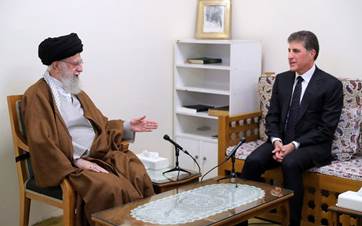
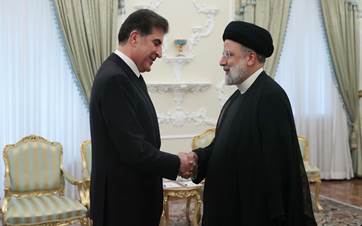
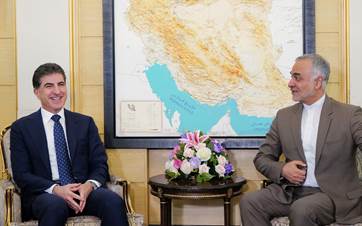
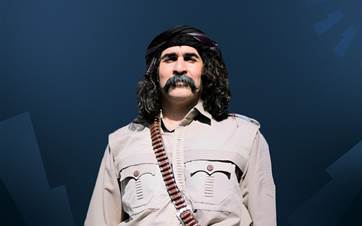
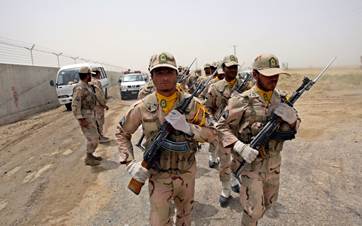
Comments
Rudaw moderates all comments submitted on our website. We welcome comments which are relevant to the article and encourage further discussion about the issues that matter to you. We also welcome constructive criticism about Rudaw.
To be approved for publication, however, your comments must meet our community guidelines.
We will not tolerate the following: profanity, threats, personal attacks, vulgarity, abuse (such as sexism, racism, homophobia or xenophobia), or commercial or personal promotion.
Comments that do not meet our guidelines will be rejected. Comments are not edited – they are either approved or rejected.
Post a comment